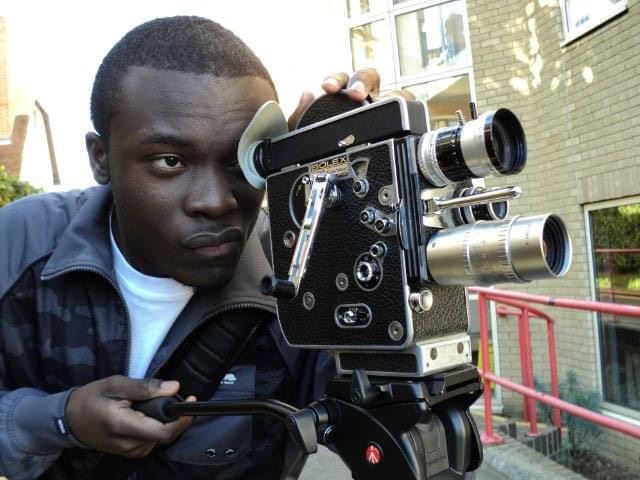Tell us a little about yourself…
I’m Cecimercy Wanza, a Kenyan filmmaker, director, writer, and producer with a deep love for emotionally honest, socially grounded stories. Over the past decade, I’ve worked across film, television, and digital media, always centering African experiences that feel intimate yet universal.
My work spans award-winning shorts like Kanairo (Soleil Space), impactful documentaries, and reality TV series such as Nairobi Bachelor (Showmax). I’m drawn to themes of identity, survival, mental health, and the quiet complexities that often go untold in our communities.

What inspired you to become a filmmaker, and how has your heritage influenced your work?
Growing up in Kenya, storytelling was everywhere, from family gatherings to matatu conversations. But I rarely saw those stories reflected on screen in a way that felt raw and true.
That absence inspired me to tell our stories not just with beauty, but with honesty. My heritage grounds everything I do. Being Kenyan means navigating layers like tribal identity, urban life, gender expectations and I weave those nuances into every character and scene.
I don’t just want to entertain, I want people to feel seen. Representation and proper representation matters.

What challenges have you faced as a filmmaker of African origin, and how did you overcome them?
Access and perception have been my biggest hurdles, access to funding, resources, and platforms that believe in African voices without diluting them. There’s also the stereotype that African stories must look or sound a certain way to be “global.” I overcame that by leaning into community, creating from what I had, and refusing to wait for perfect conditions.
With Kanairo, I proved that we can tell deeply moving, polished stories even with limited budgets and that vulnerability can be our superpower. I learned that the world can catch up and so with the use of the local “Sheng” language and showing our true selves I got a global audience interested in the work.
With Nairobi Bachelor, I learned that we have brilliant ideas and we just need the opportunity to show what we can do. I am always pushing the boundaries and sometimes that can become really difficult to do as a woman coming from a patriarchal community.

What advice would you give to aspiring African filmmakers aiming to share their stories on a global stage?
Always fail forward! That’s what I do! Start with what’s personal, what is in reach and accessible. The more specific and honest your story is, the more universal it becomes. Don’t try to mimic the global standard, create a new one rooted in your truth. Also, collaborate.
Build your tribe. Work with people who care more about the story than the spotlight. And don’t underestimate the power of digital platforms.
They can take your story places borders can’t. Lastly, remember, your voice is valid. You don’t need permission to tell your story. Just start.






